

expenditure in developing alternative energy sources*
Note*: excludes alternative energy efforts undertaken in retail network and R&D
equivalent electricity generated from renewable energy sources
of water consumption
of reduced GHG emissions
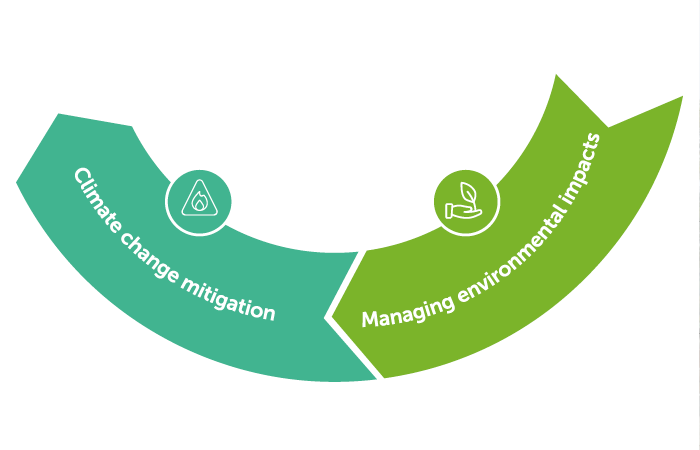
We strive to conserve and protect our natural environment by reducing emissions/effluents from our units. We monitor the emission levels regularly and proactively aspire to pursue the transition towards greener fuel, such as natural gas, biofuel, renewable energy, hydrogen fuel, etc., to minimise the impact of our products on the environment.
All our operating units comply with stipulated environmental regulations mandated by the Central/ State Pollution Control Boards and the Ministry of Environment, Forests and Climate Change authorities and orders of the Hon’ble NGT and Hon’ble Courts.
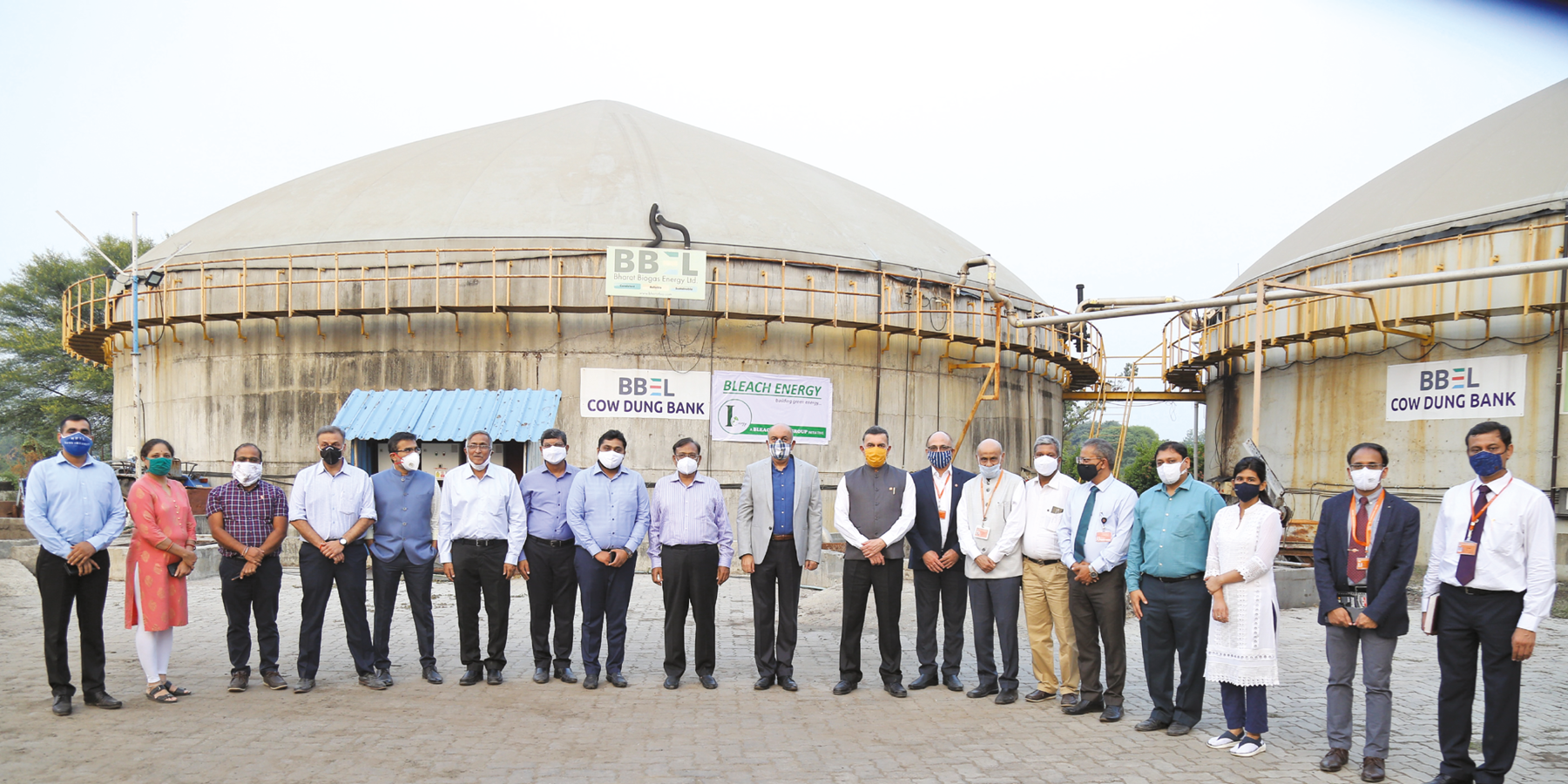
Petroleum Secretary, Shri Tarun Kapoor with Chairman Shri S. M. Vaidya at Bleach Energy Plant at Anand that produces compressed Bio-Gas, marketed under the brand name, IndiGreen
Use of oil and gas is considered to be a major contributor to climate change. Greenhouse gas (GHG) emissions from the sector are probably the most significant. As a result, we actively try to limit our impact on the environment. IndianOil, therefore, aims to achieve excellence through sustainable operations and enhance the green cover. In addition, our assets are located in various states that are prone to natural disasters, such as flooding, cyclones and earthquakes. We have drawn up a strategy to internalise these risks and safeguard ourselves from similar incidents.

Ecopark at IndianOil Guwahati Refinery
At IndianOil, we acknowledge the possible environmental, social, political and economic implication of climate change. Since our business activities, especially our plants, are energy intensive, we strive to contain and reduce our carbon footprint in a technically and economically feasible manner.
Recently, we moved to alternative energy sources like biofuels, hydrogen/H-CNG, solar energy, green diesel, carbon capture and utilisation, which has resulted in the production of biodiesel and 2G ethanol. This supports Governments initiative to reduce crude imports. Further, to reduce India’s dependence on imported LPG, a solar cooker laboratory was also set up.
of total energy consumption
capacity of renewable energy
Energy Intensity Index (EII) rating
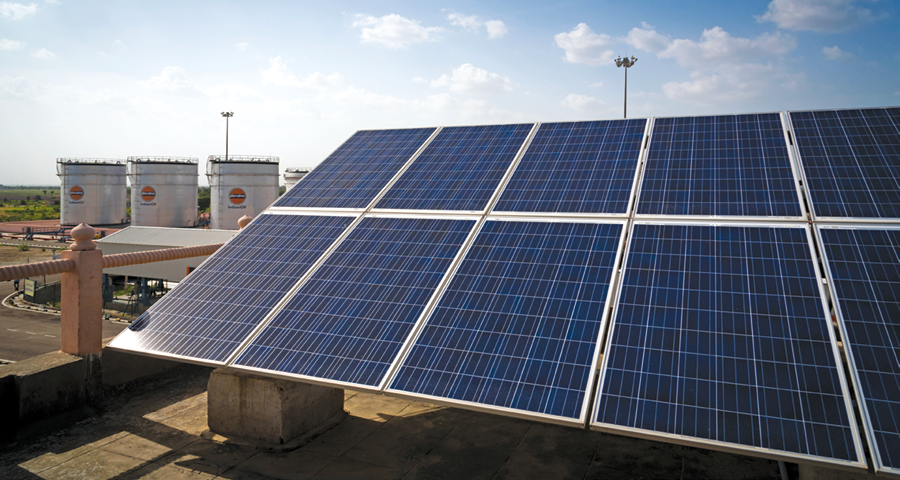
Water is extensively consumed in our operations for varied purposes. As a result, we undertake measures to reduce the use of water and ensure reuse of water, wherever possible. All refineries and some of our larger marketing and pipeline locations have effluent treatment plants. Wastewater generated from these operations are recycled and used within our facilities.
In keeping with our endeavours to ensure optimum use of water, we undertake various initiatives aimed at conserving water. Necessary interventions like rainwater harvesting projects, watershed projects, ‘Zero-liquid Discharge’ from locations have been undertaken. Moreover, we conduct water audits/efficiency evaluations to improve water usage across our units. To promote sustainable water management, most of the refineries have undertaken water audits, in a bid to reduce water consumption and promote water conservation.
of total water footprint*
Note*: Freshwater + recycle wastewater
of waste water generated
of waste water recycled
of waste water recycled
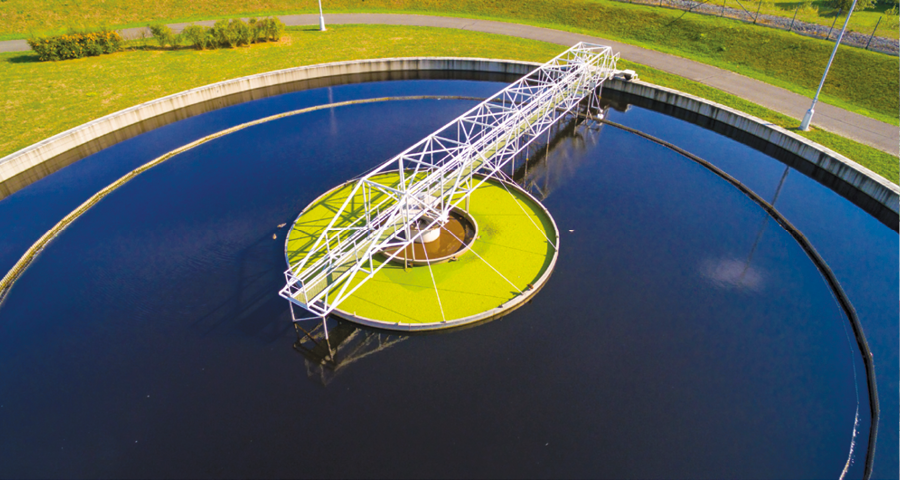
Given the nature of our business, a significant amount of waste is generated from our plants. At IndianOil, we ensure waste management as per the laws and policies implemented by the State Pollution Control Boards (SPCBs). We have initiated measures for waste reduction, recycling and efficient waste treatment.
Waste paper recycled
cumulative sale of compressed biogas (CBG) as on March 31, 2021
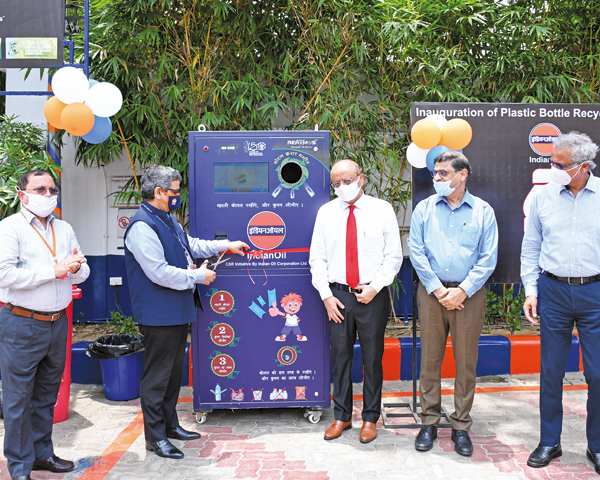
Plastic Bottle Recycling machine at IndianOil Retail Outlet
With the responsibility to fulfil the nation’s energy demands, IndianOil will continue its pursuit for low carbon energy solutions while establishing safe and resilient energy delivery systems. We strive to offer value-added petroleum products and ensure seamless supply of fuel for customers in every corner of the country. Keeping sustainability at the core of our endeavours, we are consistently exploring opportunities for developing clean energy and enhancing our operational efficiencies through the adoption of new age digital processes. Looking ahead, we are confident of building a brighter tomorrow with ecologically sustainable solutions.